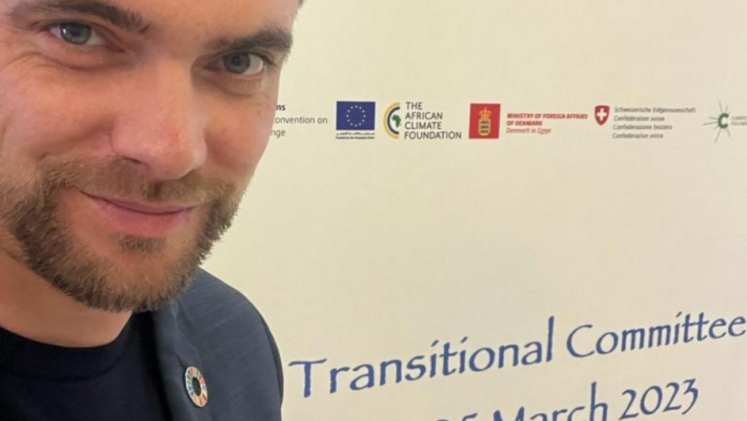What is the Transitional Committee of COP27 and why did they meet this week?
Recently, the Intergovernmental Panel on Climate Change concluded that adverse climate change impacts and related losses and damages to nature and people are widespread, and that vulnerable communities that have contributed the least to climate change are disproportionally affected. While loss and damage has its own article under the Paris Agreement, the question of finance for loss and damages was not covered until the last climate COP27 in Egypt at the end of 2022. The final decision taken there established funding arrangements to respond to loss and damage, including addressing it through a specific fund. A Transitional Committee (TC) consisting of 14 representatives from developing countries and 10 from developed countries was mandated to give recommendations for the operationalization of the funding arrangements and the fund itself. These recommendations will be up for consideration and adoption at COP28 in Dubai in December 2023. Initially, nominations for representatives from countries were delayed by three months, so it is a success that the first meeting of the TC even took place in Luxor, Egypt from 27-29 March. The meeting was preceded by a strategic retreat of TC negotiators to exchange their initial positions and demands.
Why is this meeting important?
Several meetings will take place before COP28. This first meeting was scheduled to set the tone and to agree on a structure for work going forward. The TC will lay the fundamental direction and elements of the future loss and damage financing structure and has a considerable amount of work ahead in only a short period of time. TC members promised to remain creative and flexible while working towards a future-proof financing system. They are aware that they have a challenging yet historic opportunity to shift the response to loss and damage towards a coordinated and systematic approach based on solidarity, predictability and responsibility. To help them, the United Nations Framework Convention on Climate Change (UNFCCC) Secretariat convened a Technical Support Unit (TSU) consisting of representatives from international financing institutions and operational UN agencies. Important input into the discussions will be a synthesis report of the TSU, of which a first draft was shared at the meeting.
Is there consensus already? What are the major challenges and sticking points?
Addressing loss and damages spans a wide array from economic to non-monetary losses and damages, and from losses that arise out of sudden, unexpected disasters such as cyclones or wildfires, or slow-onset processes such as sea level rise. Despite considerable differences in the visions and opinions of country group representative, the tone in the meeting was constructive and forward-looking. After listening to technical inputs by members of the TSU, countries presented their initial positions. Some countries urged to focus the fund on slow-onset processes – since these appear to be a gap in existing funding arrangements. Others specifically asked for a focus on extreme events. Additionally, a debate took place regarding the role of insurance. Some members highlighted the emerging Global Shield against Climate Risks (an initiative outside of the UNFCCC launched by V20 and G7 countries last year). Others also specifically asked for an insurance layer in the loss and damage fund. Additionally, organisatons representing civil society mentioned that too much time was devoted on the insurance theme. Another question discussed were the roles of humanitarian actors and multilateral financing institutions (MFIs). Lastly, there is the matter of how the Santiago Network - a capacity-building initiative on addressing loss and damage – will interact and work together with the funding arrangement.
What will happen next?
The TC members face difficult decisions ahead. They need to spot the gaps that are most important to bridge and decide on recommendations for (a) establishing institutional arrangements, modalities, structure, governance and terms of reference for the fund; (b) defining the elements of the new funding arrangements; (c) identifying and expanding sources of funding; (d) ensuring coordination and complementarity with existing funding arrangements. To be able to provide timely recommendations, the TC will meet three more times before COP28. There will be two workshops as well as a dialogue taking place during the Bonn Climate Change Conference in June 2023. A ministerial meeting will also take place before the fourth and final TC meeting likely happening in October or November, where the recommendations are to be adopted. Expert organizations will have the chance to provide input and submissions ahead of the meetings.
Why is this process important for UNU-EHS?
The TC is to be informed by the latest science as well as the current landscape of institutions that are funding activities related to addressing loss and damage on global, regional and national levels. UNU-EHS has considerable expertise in areas relevant to the loss and damage finance architecture, including risk and vulnerability assessments, climate and disaster risk finance and insurance aiming to quickly disperse finance after an event hits. UNU-EHS also has institutional expertise regarding the set-up of instruments under the UNFCCC. It is the mandate of the Institute to actively contribute its expertise to emerging discussions in the UN system. Over the coming months and through its different departments and divisions, UNU-EHS will follow the journey of the Transitional Committee and deliver meaningful inputs to one of the biggest building blocks for a successful COP28 in the United Arab Emirates.





